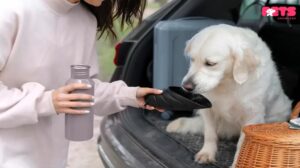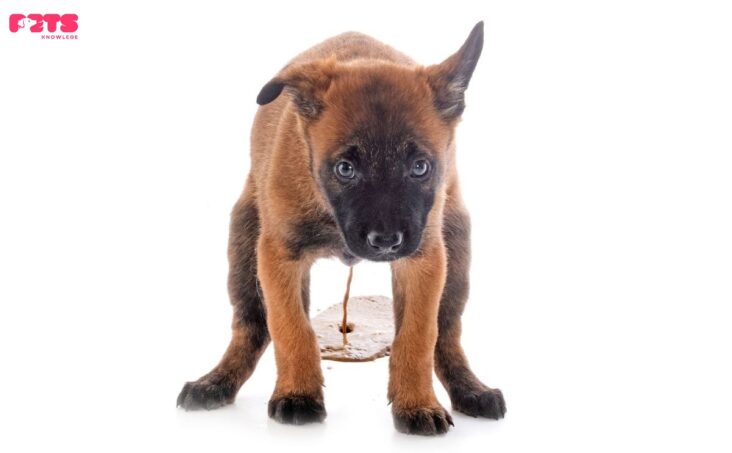My Dog Has Diarrhea But Is Acting Fine
Even with chronic diarrhea, your dog may act completely normal.
As a parent pet, it is horrible seeing your fur babies suffering.
Crucial is that you always have some consultation with your veterinarian before trying to treat your dog’s diarrhea with your methods. First, the dog will be put on a fast from 12 hours up to 24 hours. This fasting may help lessen or stop your dog’s diarrhea.
If that fails, you might have to feed them dog chow that has been specifically prepared until they recover.
People also ask
Despite having violent diarrhea, my dog is acting normally.
My Dog Has Diarrhea But Is Acting Fine
Dogs that have explosive diarrhea, which means acute onsets of watery stools, are often alarming but do not represent a serious underlying disease. Poor eating habits, parasite or Salmonella infections, and food allergies or sensitivity top the list of potential causes. It may not be uncommon, but it’s quite disturbing when dogs act normally during such episodes. However, be on the lookout for new clinical signs such as blood in the stool, vomiting, or lethargy, as these may indicate more serious disease processes that a veterinarian should evaluate. Regarding urgent care, keep your dog well-hydrated, consider short-term fasting, and then a bland diet. You may want to add probiotics, allowing your dog to reboot his intestines.
Also included in the prevention is careful monitoring of food intake and regular visits to the vet. Moreover, it consists of a stress reduction.
My Dog Has Diarrhea But Is Acting Fine, he develops yellow diarrhea.
Dog excrement is normally brown; yellow stools are abnormal. What exactly does “yellow” signify, though?
There are several shades of yellow, from a muted brown to a brighter, almost dazzling yellow. This color may be the result of bile present in the stomach or anything the dog ate that was yellow and not well absorbed, like that missing wax crayon.
Look for uneven or spotty coloration throughout the stool to distinguish between the two. There will be bits of scavenged yellow crayon surrounded by brown excrement. In contrast, the color of the stool that contains bile pigments is more uniform.
What Types of Diarrhea are There in Dogs?
My Dog Has Diarrhea But Is Acting Fine so what do I do in this condition it very compulsory we know about the types of diarrhea
There are three types of diarrhea that both humans and dogs can contract. Diarrhea is quite stressful for your dog. Your dog may experience a little pain and discomfort because of diarrhea. Below are the explanations regarding the different types of diarrhea in dogs.
Acute Diarrhea with Water

It’s sudden diarrhea that’s full of fluid. Much like you, your dog might get diarrhea which does make them have to urinate urgently. Your dog will let you know when they have had enough and it’s time to go out. Their needs are the same as yours.
Severe Bleeding Diarrhea

It is more serious, though. Blood can show up in your dog’s stools in some ways. Your dog may either have. The symptoms in most cases more or less remain the same for acute bloody diarrhea as for acute watery diarrhea in dogs. Bright crimson-streaked stools or black tarry stools.
Chronic Diarrhea
Looseness of the bowels in dogs that don’t answer customary treatments, or where it answers at first however the runs repeats over the long run, is implied to be persistent enteropathy or loose stools. When constipation continues for more than fourteen days, it should be considered a chronic condition.
Which factors lead to diarrhea in dogs?

Any of the mechanisms of diarrhea mentioned above could, in practice, be caused by a wide range of different diseases or situations. Some frequently make dogs ill. Moreover, the dog can vomit or show weight loss, lethargy, or other signs. Some of the more common medical diseases that can fall into that category are as follows:
- Among others, common causes include a high-fat diet causing dog pancreatitis or pancreas inflammation.
- Canine acute renal failure
- Canine acute liver illness, such as hepatitis
- Gastroenteritis hemorrhagic (HGE)
How Diet Affects Dog Diarrhea Prevention
Examining your dog’s diet is a reasonable move if they seem healthy overall but are experiencing loose stools. Their diet is very important for preserving their general health, especially their intestinal health. Let us investigate the potential impact of specially-made dog foods.
Dog Foods Designed with Digestive Health in Mind
Specially manufactured dog foods are made with consideration for the digestive processes of dogs, not just as marketing gimmicks. These foods give them all the nutrition they need without stressing out their tummies, so diarrhea bouts are less common.
However, this isn’t all about dog friend care. Additionally, you should offer your pet fresh water to toast them, as drying out will just improve the issues of loose bowels and be awful for its overall well-being.
The Probiotic and Prebiotics’ Strength
Beyond regular food, probiotics can be a hidden weapon in the fight against intestinal problems in dogs. These good bacteria facilitate nutrient absorption and effectively break down food particles to improve digestion.
In reality, these helpful bacteria are already present in a lot of carefully prepared dog diets as part of their recipe mix. By empowering a good overall arrangement of digestive greenery, giving your dog these eating regimens consistently has shown promising impacts in assisting them with recuperating from loose bowels all the more rapidly.
What at-home remedies are there for dog diarrhea?
My Dog Has Diarrhea But Is Acting Fine
When your dog exhibits symptoms of diarrhea, you can provide comparable medical care at home.
Bland diet
It’s okay that a lot of dogs with diarrhea still want to eat! Small portions of a bland diet given frequently throughout the day can help relieve your dog’s gastrointestinal distress.
Dogs with diarrhea respond best to low-fat, highly digestible prescription diets from veterinarians. These carefully prepared dog feeds provide all the energy needs of a dog while also encouraging good gut flora.
However, cooked chicken and white rice are usually safe to give your dog in an emergency. This blend of foods still follows the guidelines of a bland diet yet gives your dog essential nutrients.
The majority of vets advise utilizing skinless boiled chicken and boiled white rice. Low-fat curds, potatoes, and ground turkey are additionally magnificent choices. Remember that when you set up your dog’s food, you shouldn’t add any oils or flavors to the fixings. Moreover, make sure to give your dog heaps of new water consistently.
After three to five days of the bland diet, you can usually gradually return your dog to its usual food, assuming your dog’s diarrhea clears up (unless your vet directs you otherwise).
Fiber supplements
Additionally, providing your dog with additional fiber will help with his diarrhea. It accomplishes this by improving the texture of the stools and the food’s ability to travel through the intestines. More importantly, fiber is a dietary food for the so-called “good” gut flora in dogs, which further improves gut health.
Even though some fiber is already present in your dog’s food, it may not be enough to treat the diarrhea. That is when supplementing your dog’s diet with fiber, or better yet adding simple canned pumpkin for dogs to his or her meal helps.
Conclusion
Diarrhea in dogs can be properly handled with careful observation and appropriate action. This might be an unpleasant sign to see if your dog seems healthy, but it’s wise to pay a visit to a veterinarian to find out more about the cause and action to be taken. Expert advice supports the best possible outcome for the health of your pet. Home remedies may include such things as fasting, bland meals, and perhaps probiotics to reduce symptoms. Always put drinking water first, keep an eye on worsening symptoms, and seek veterinarian help if possible for treatment of big underlying issues.
FAQs
-
If your dog has diarrhea but seems otherwise okay, how worried should you be about him?
Lethargy, fever, vomiting, and diarrhea of several days’ duration do not necessarily signify an emergency but can signal an underlying medical condition. If in doubt, consult your veterinarian.
-
What kinds of diarrhea are there in dogs?
Acute bloody diarrhea, which frequently indicates more serious problems, acute watery diarrhea, which has a fast onset and fluid-filled stools, and chronic diarrhea, which is continuous diarrhea lasting longer than two weeks, are the three primary forms.
-
What part does my dog’s food play in his diarrhea?
A major factor in management and prevention is diet. Feeding a bland food that is made from rice and cooked chicken can help quiet your dog’s stomach. Probiotics and specially formulated diets for healthy digestion also have their roles in the healing process.

